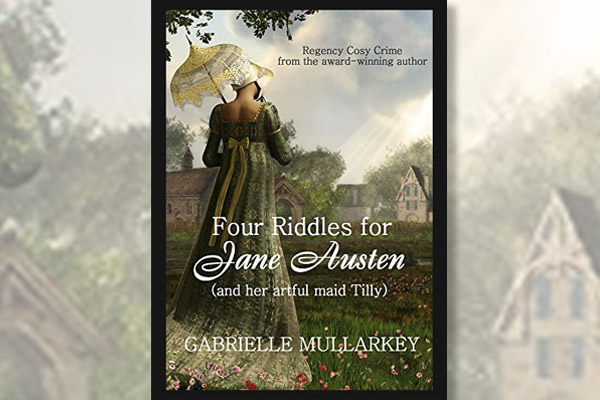Alan Chats To Writer Gabrielle Mullarkey

Gabrielle Mullarkey is regular writer to the pages of “The People’s Friend”. Here I ask Gabrielle about her short stories and novels.
Have you always been a “Friend” short story writer?
I always aspired to be but I had to grow into the role. Fortunately, because of the range of genres and story lengths in the “Friend”, variety really is the spice of a writer’s life.
How important is inspiration to you, and does this affect the type of stories you write?
I think we all have those light bulb moments. I love reading a quirky newspaper story that makes me think, “Hang on, if that was fiction, it might be deemed outlandish.” Once I have a “ping!” moment like that, it often determines the genre.
For example, I once wrote a comic story based far from loosely on an incident when I was a teenager. One Christmas Eve/Day, my mother accidentally locked us out of the house at 2 a.m., the first in a series of unfortunate events, culminating in the cat dragging the defrosting turkey out through the cat flap.
I barely had to embellish the story, yet people still ask me if any of it was true.
Short fiction or novel – which do you prefer to write and why?
I think both disciplines appeal for different reasons. I love getting to grips with writing an intricately plotted novel where you, as the writer, aren’t necessarily sure what the characters will get up to next.
On the other hand, a short story or an episodic serial is a balancing act between concision and flexibility, and there’s a lot of fun in that. I’m partial to the quote by the American writer Lorrie Moore, who says a short story is a love affair, whereas a novel is a marriage.
Your last novel has just had a bit of a renaissance and acquired a new cover. What is it about, and how did you find writing it compared to your other novels?
“Four Riddles For Jane Austen” (and her Artful Maid Tilly) melds my love of all things Austen with my passion for a good old-fashioned mystery. The novel combines known facts from Jane Austen’s life with a fictional account of how she solves four chilling crimes, aided by her maid of all work, a French orphan called Mathilde, shortened to Tilly.
The latter can go to places and talk to people that Jane can’t, and vice versa. Along the way, Jane meets a garrulous mother with five daughters she’s keen to marry off, an obsequious parson, a handsome but disdainful landowner who declines to dance with her at a ball – and so on.
They’re all woven into the plot of the four riddles. I did my research along the way, and it was a lot of fun to write. It differs from my previous two novels, “Hush Hush” and “A Tale Of Two Sisters”, which are emotional family dramas set in the present day, laced with dry humour and my abiding preference for a twisty plot. You can see all the books on my website.
What attributes does a writer need in order to be successful?
Tenacity, imagination and a balance between self-belief and self-awareness. A thick skin comes in handy too! It’s all too easy for criticism to knock confidence, but constructive criticism can make you see a piece of writing in a new way.
I’m a creative writing adult learning tutor as well as a writer, so I know the importance of sensitive feedback and appreciate it when it comes to my own work.
What type of books do you like to read? Any favourite authors?
It’s no secret by now that I’m a huge Jane Austen fan! I re-read her books periodically. I like to read as widely as possible. One week it might be a gritty thriller, the next a gentle or even rollicking comedy.
For example, recently I re-read Joseph Heller’s “Good As Gold” – a satire on American politics – that makes me laugh out loud. I also devour every Stephen King novel as soon as it’s published – then have to sleep with the light on!
Have you ever given up on a novel – or do you persevere through to the end?
I wrote about this recently in an article and confessed I’d been determined, in a hair shirt kind of way, to finish reading “The Egoist”, by George Meredith. On the whole, though, I’m guiltier of neglecting to read books that people recommended yonks ago.
Three years later, I still have my sister’s copy of “The Golden Notebook” by Doris Lessing, that’s all I’m saying! (It’s not you, Doris, it’s me.)
In one sentence, sum up what fiction means to you?
A portal to countless other worlds that are free to visit and explore.
@authorgabrielle





